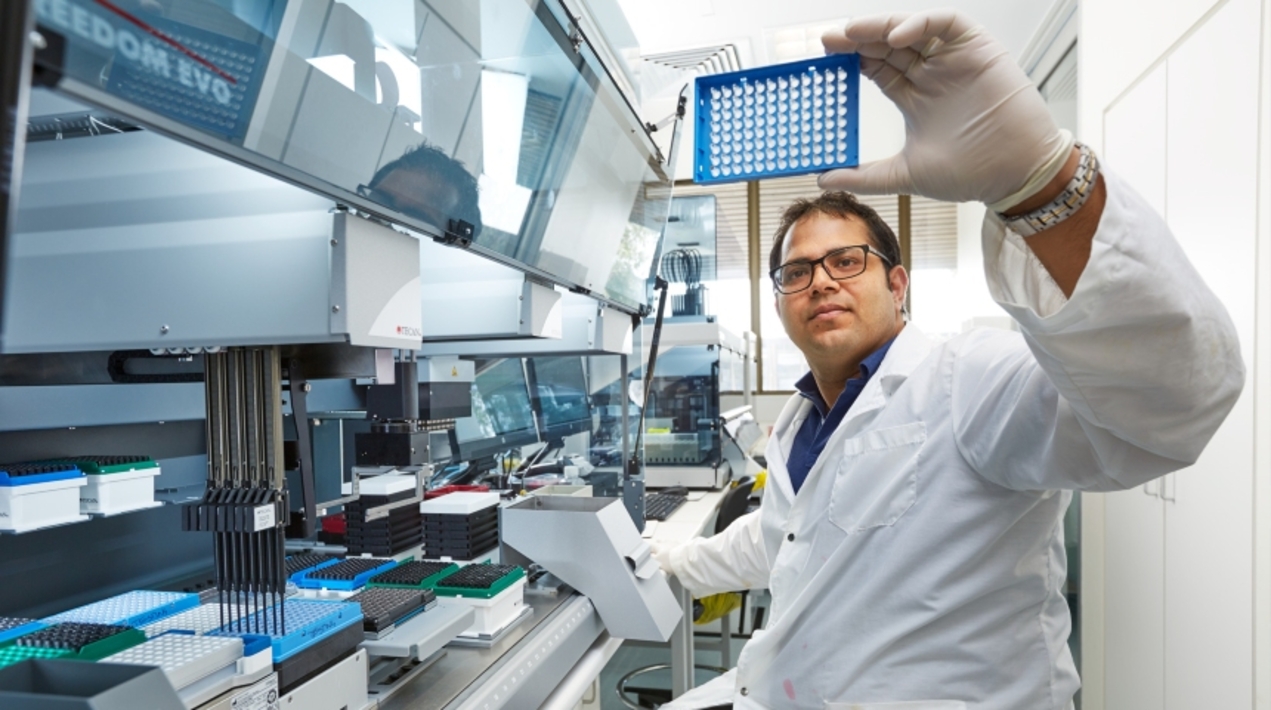
Researchers are spotting drug-resistant superbugs before they break out and reimagining biosecurity at a regional level to stop the spread of infectious diseases. Scientists at Murdoch University are contributing research that is strengthening our understanding of infectious diseases and how to stop them.
The COVID-19 pandemic has demonstrated the devastating impact of infectious diseases. Millions of people have died and millions more have suffered from the wider health, economic and social impacts. Stopping infectious diseases has been identified by the World Health Organisation as one of the most urgent health challenges of this decade and is now in sharp focus.
Overcoming antimicrobial resistance
Antimicrobial resistance, when infectious organisms no longer respond to medicines, is a major challenge in managing infectious diseases. It occurs when bacteria change over time, making infections harder to treat and increasing the risk of disease spread, severe illness and death. Overcoming this challenge requires a One Health approach – which recognises that the health of humans, animals and ecosystems are interconnected.
At Murdoch University’s state-of-the-art Antimicrobial Resistance and Infectious Diseases (AMRID) Laboratory, Associate Professor in Microbiology Sam Abraham leads the One Health Infectious Diseases research team. Associate Professor Sam Abraham, “Globally, there is a significant public health concern due to the transfer of such bacteria to humans via food and the environment, the limited therapeutic options to treat such infection in humans and the rapid transmission of genes responsible for antimicrobial resistance into human pathogens.”
This is a concern that precedes and extends beyond the current COVID-19 pandemic, with research from the team exploring how Australian animals may acquire bacteria resistant to last-line antimicrobials. Their research has shown that Australia currently has low levels of resistance to last-line antimicrobials in livestock due to the regulation of antimicrobial use, Australia’s geographical isolation and strong biosecurity.
“It’s crucial that we keep it that way, so the use of technology and antimicrobial resistance surveillance is important,” said Dr Abraham.
Embracing technology to beat bacteria
The team is using innovative robotics, genomics and microbiology to study antimicrobial resistance in key zoonotic bacteria emerging in Australian animals. Dr Abraham noted that most countries are using low numbers of samples for antimicrobial resistance surveillance, which is not going to help find emerging issues until it is too late. “We need to use high-throughput robotics and genomics with rapid turn-around time for analysing large data sets to identify emerging problems quickly and respond to those problems rapidly.”
The facility has used its platforms in several national antimicrobial surveillance programs in livestock. It has also been used for surveillance of wild bird species including seagulls and pigeons, finding them to be carriers and potential spreaders of highly drug-resistant superbugs. “Twenty per cent of Australian seagulls are carriers of human pathogens capable of causing serious human infections such as meningitis, sepsis, and urinary tract infection,” said Dr Abraham.
So, the major issue in Australia is the threat of human-derived drug-resistant bacteria entering livestock systems directly or indirectly via wild birds through sewage and waste disposal. Their research has demonstrated the emergence of last line drug-resistant bacteria – at low frequency – in livestock, companion animals and wildlife as a result of human-derived bacteria entering the animals directly or in-directly through birds. This poses a significant risk to animal and human health and our ability to control such infections.
Dr Abraham’s research has helped inform national and international approaches to combatting antimicrobial resistance – including assisting with the process that developed Australia’s National One Health Antimicrobial Resistance Strategy.
Optimising surveillance and biosecurity
Another area of research expertise contributing to a better understanding of infectious diseases is focused on disease surveillance systems and how biosecurity systems operate. Led by Professor of Biosecurity Simon McKirdy, Pro-Vice-Chancellor of the Harry Butler Institute, this research is looking at the development of biosecurity systems to ensure that they operate cost-effectively and in an efficient manner that protects people, agriculture and the environment.
“Our work centres on developing robust surveillance systems that can deliver results that decision-makers can utilise – both as an early warning tool and also for real-time decision making during a response to a disease outbreak,” said Professor McKirdy.
The key elements include having robust and appropriate risk analysis to understand the threats and mitigation measures. Then having an effective surveillance system that is linked to diagnostics and provides a high level of confidence in detecting threats and collecting the right number of samples to give us statistical strength to say this is the current presence or level of disease within the community, McKirdy says.
The unfolding COVID-19 pandemic has highlighted the importance of having robustly designed surveillance systems and how these are presented to the community, along with the need to focus on the wider One Health relationships. The human world, in relation to biosecurity surveillance, can learn a lot from the animal and plant world. The more we can bring these One Health aspects together, the better will be the outcome,” said Professor McKirdy.

















